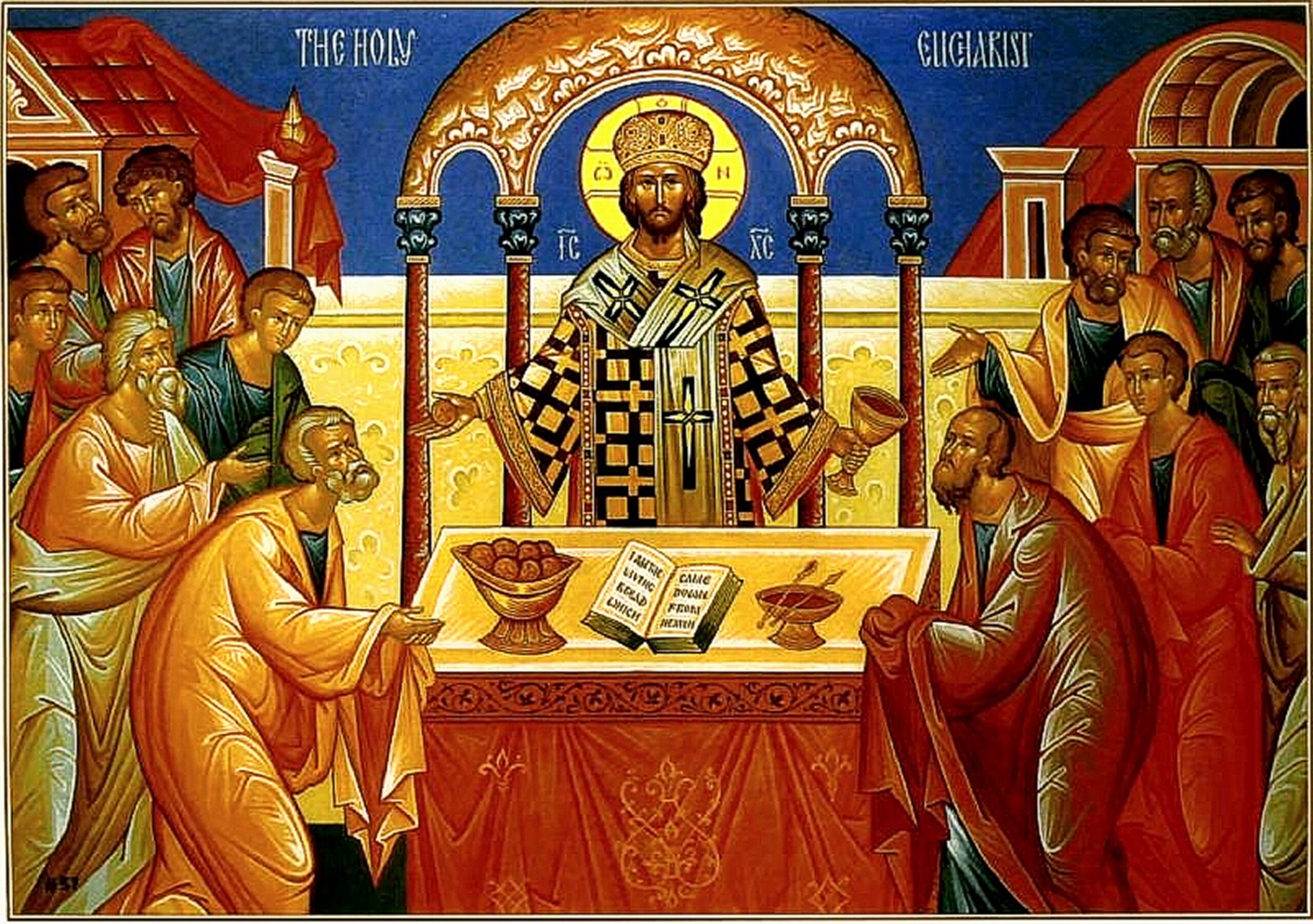Remember, Lord our God, all Your people, and pour out Your rich mercy upon them, granting them their petitions for salvation. Remember, O God, all those whom we have not remembered through ignorance, forgetfulness or because of their multitude since You know the name and age of each, even from their mother’s womb.
(Divine Liturgy of St. Basil the Great, p. 34)
—
But now thus says the Lord, He who created you, O Jacob, He who formed you, O Israel: “Fear not, for I have redeemed you; I have called you by name, you are Mine. When you pass through the waters I will be with you; and through the rivers, they shall not overwhelm you; when you walk through fire you shall not be burned, and the flame shall not consume you.”
Isaiah 43:1-2
Christ is Risen!
This beautiful prayer of St. Basil has included everyone and everything we can think of. In it we’ve prayed for all kinds of people and so many specific types and categories of people and situations. And now with a broad stroke, like the finale of a fireworks display, St. Basil writes “Remember, Lord our God, ALL Your people, and pour out Your rich mercy upon them, granting them their petitions for salvation.” (Divine Liturgy of St. Basil the Great, p. 34) As if the specific petitions for those who are young, old, married, struggling, etc. were not sufficient or somehow left out someone, we not pray for ALL the people.
We are supposed to hear these prayers and reflect on ourselves and those we know as we hear them. I know when I offer this prayer, and get to the line about marriage, I think about my own marriage, or as I pray for instruct the youth, I think about my child. As I get to the thoughts about strengthening the aged, I think of someone in my community who is old. The truth is that even if I sat with this prayer all day, if I took each phrase and thought of everyone I know that fits each category, I would miss someone. I would forget someone. Even if I had the best of intentions in remembering people to pray for, I would miss someone, because, as the prayer says, of the sheer “multitude” of people and possibilities.
Then there is another category of forgotten people—those we ignore. I will always be grateful for the time I served as a deacon to His Eminence Metropolitan Methodios of Boston. At a Hierarchical Divine Liturgy, the celebrating Hierarch makes a commemoration of those who are living and those who have passed away during the Great Entrance. His Eminence, when he commemorated the living, always prayed, “Lord, remember those to whom we are indifferent.” In other words the ones that we pass by, like the priest and the Levite, who passed by the man who had been robbed. In this parable, we aren’t told if they passed by because they didn’t care, or were too busy or were too distracted, only that they passed in close proximity to someone who was obviously suffering and did nothing to help him.
We will all ignore people—some because we are busy, and probably some because we don’t care. We all struggle with what to do with the homeless person begging for change. There is the person who always seems to have a problem that we don’t have time for, or who we don’t want to bring down our mood. Oftentimes we don’t take the few moments to ask someone how they are doing, or if we do and they say they aren’t doing well, we sometimes get through the conversation too quickly, not wanting to take the time. The forgotten and the ignored are also remembered in this prayer.
Sometimes the “forgotten” are people we haven’t seen in a while, and it’s the old “outta sight, outta mind” idea. I something think of people I haven’t seen in church or people I haven’t heard from in a while and this prayer becomes a good prompt to call someone.
This segment of the prayer is also for those we do not know at all, for those we’ve never met, but who still inhabit our towns, drive on the roads next to us, or live down the street. The prayer asks God to remember everyone. And not only the name but the need. Because of God knows “the name and age of each, “then He certainly knows the needs of each as well.
Isaiah 43:1 is a powerful and comforting verse of the Bible, and it is address to everyone. In it we read, “But now thus says the Lord, He who created you, O Jacob, He who formed you, O Israel: ‘Fear not, for I have redeemed you; I have called you by name, you are Mine.’” This is addressed to all people of all circumstances, including the wayward, the forgotten, the habitual sinner, everyone. Because He knows each name and He has called each person by name and offered redemption to all of us.
